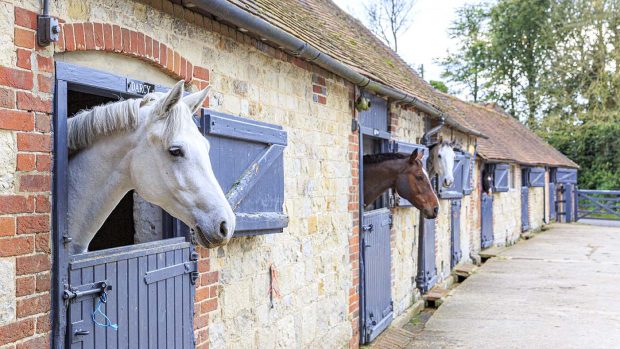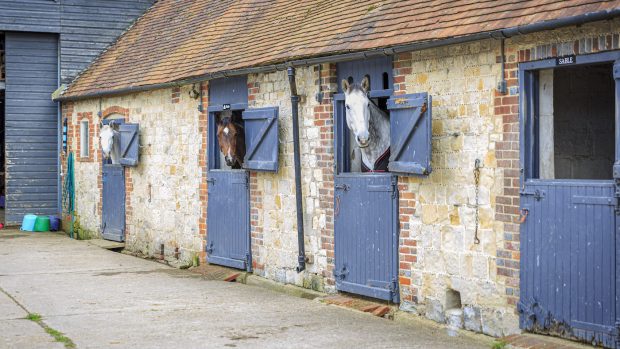THE equestrian industry faces “very challenging times” across the board in terms of financial viability.
This is the message from the Equestrian Employers Association (EEA), which carried out a survey as part of the Low Pay Commission’s (LPC) consultation on national minimum wage (NMW) and national living wage (NLW) rates.
The aim was to gather employers’ thoughts on current and future rates; the Government has proposed that the NLW, paid to those aged over 23, will be £10.95 per hour by April 2024, which 65% of those surveyed by the EEA said was too high.
This amount, for a 50-hour week, would mean an annual salary of £28,470, a £3,770 increase from the current rate.
“The survey has highlighted some very challenging times ahead for the equestrian industry,” an EEA spokesman told H&H. “Employers are struggling to recruit skilled workers, and the higher NMW rates proposed are further limiting the pool of applicants employers feel able to recruit from. Essentially, recruiting older workers is becoming cost-prohibitive for some. The lack of flexibility in working hours is also posing a huge problem in both the recruitment and retention of experienced staff.”
The survey found that during the past year, 72% of employers’ profits have fallen, and 60% said they are unable to invest in their businesses.
“Three-quarters of employers have had to increase their prices to clients to accommodate this, and with the proposed rise in the NMW rates, it’s highly likely that employers will need to continue this trajectory,” the spokesman said.
“We help our members through education and advice on a wide range of employment matters, alongside the awareness-raising and advocacy work that we are doing to support the industry. The EEA will continue its work, with the issues raised by this survey at the forefront.”
Other issues raised in the survey were attracting and retaining staff; 93% said recruiting was an issue, the main reasons being lack of flexibility in work hours and the fact qualifications do not prepare people for the real world.
Responses to the survey, on lowering the NLW threshold to 23, included “Unsustainable. We cannot keep increasing charges to cover the costs.”
EEA president Tullis Matson said: “It’s highly expected that the rise will go ahead due to the cost-of-living crisis and the pledge in the Conservatives’ manifesto.
“Employers in the equestrian industry must plan and take action if their businesses are to remain viable over the next two years.”
An LPC spokesman told H&H: “We welcome this submission from the EEA. We will review all the evidence received and make recommendations to Government by the end of October on minimum wage rates for 2023.”
A Government spokesman told H&H: “The Government is determined to make work pay, and in April we increased the NLW to £9.50, the largest ever increase since its introduction in 2016. Thanks to the action we’ve taken, unemployment continues to fall and there are more employees on payrolls than ever before.
“In the long term, we are committed to building a high-skilled, high-wage economy that delivers on our ambition to make the UK the best place in the world to work.”
You might also be interested in:

‘Without staff, we have no business’: change needed to ensure a sustainable workforce

Major fund launched to boost equestrian skills and workforce

Subscribe to Horse & Hound magazine today – and enjoy unlimited website access all year round
Horse & Hound magazine, out every Thursday, is packed with all the latest news and reports, as well as interviews, specials, nostalgia, vet and training advice. Find how you can enjoy the magazine delivered to your door every week, plus options to upgrade your subscription to access our online service that brings you breaking news and reports as well as other benefits.




